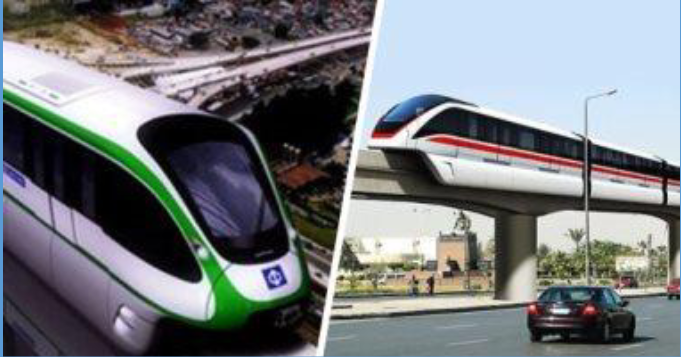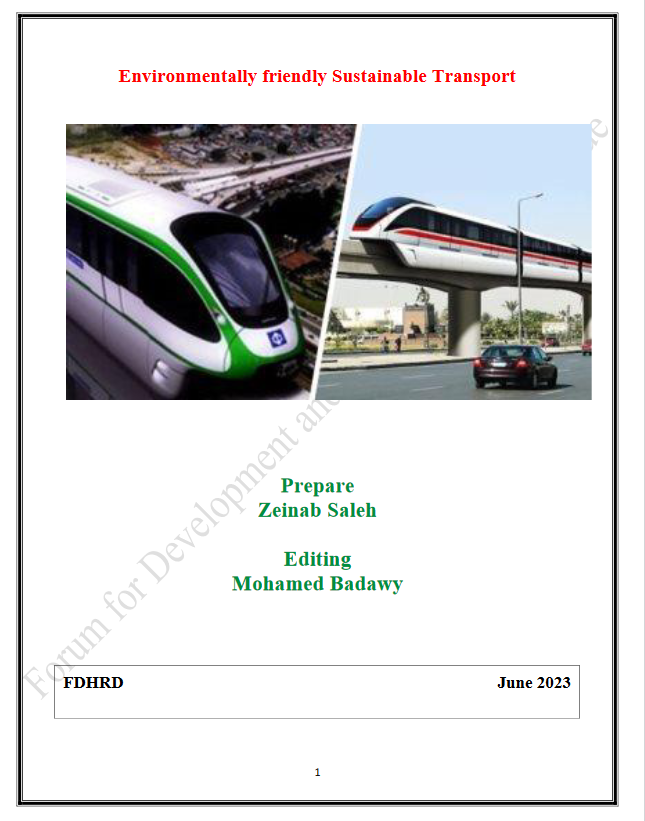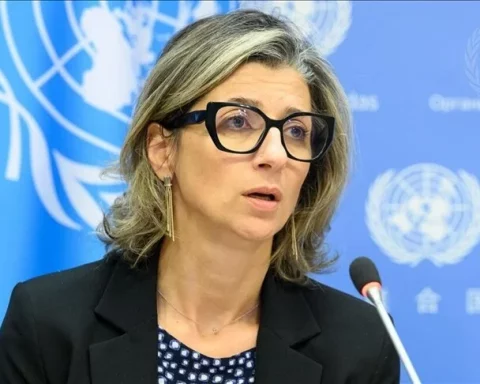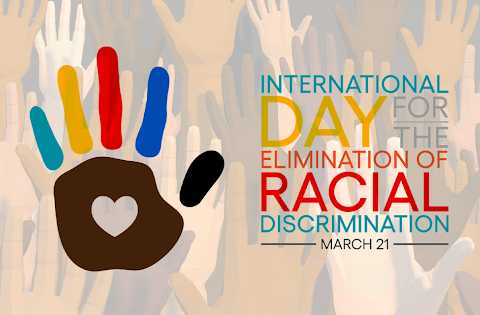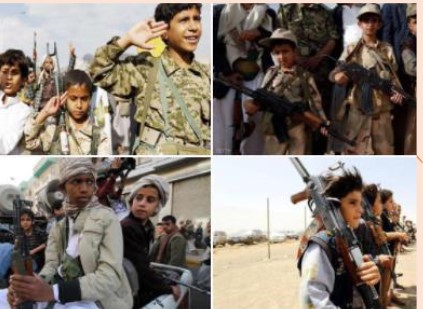Press Release
……………………………………………………
Today, Wednesday, 21/6/2023, the Forum for Development and Human Rights Dialogue its report “Environmentally friendly sustainable transport”, which addresses the relationship between transport and sustainable development through several axes:
- Definition of sustainable transport.
- Advantages of sustainable transport.
- Challenges have faced by sustainable transport.
- Relationship between Transport and Sustainable Development.
- Egypt’s vision 2030.
- Egyptian projects implemented in sustainable transport.
- Recommendations.
The report indicated that transport was currently under way. According to estimates, some 450 million people in Africa, or more than 70% of the rural population, are not connected to transport networks and do not have transport. There is also a profound imbalance in the efficiency of supply chains. Transporting the avocado container from Kenya to the Netherlands, for example, requires 200 interventions and more than 20 documents at a cost equal to freight. Solving this problem increases farmers’ income by between 10 and 100%. In terms of public safety, about 1.3 million people die on the world’s roads annually, and tens of millions are seriously injured. Road accidents are the leading cause of death among young people in the 15-29 age group. Transport also emits 23% of all energy-related greenhouse gases, and its carbon dioxide emissions could reach 40 percent by 2040.
These indicators are a cause for concern, given that sustainable transport is critical to reaching the targets of the 2030 sustainable development agenda and achieving many, if not all, sustainable development goals, such as reducing greenhouse gas emissions (Goal 13), achieving food security (Goal 2) and enhancing access to health-care services (Goal 3). A sustainable transport sector is also necessary to increase young people’s access to schools (Goal 4) and ensure that women have access to employment and empowerment (Goal 5). In the 2030 Agenda for Sustainable Development, it mainstreams sustainable transport into several sustainable development goals and targets,
The Ministry of Environment is also encouraging citizens to use environmentally friendly and sustainable means of transport to reduce emissions from fuel used in conventional vehicles, so as to improve air quality, mitigate the effects of climate change and preserve biodiversity and the environment. The Government’s new strategy is sustainable transport, consisting of multiple national road projects, as well as the development of various means of transport, with the aim of providing urban and environmentally friendly transport, to raise the rates of traffic liquidity within the main cities, as this has a positive economic, social, environmental and health return. That strategy has taken a considerable seat in the Government, with considerable support from the political leadership, for its important role in urban development. The Egyptian State carries out 6 environmentally friendly transport projects represented in the Ministry of Transport, in light of its interest in green transport), namely: Monorail/LRT light electric train connecting the administrative capital of Greater Cairo/The express electric train/BRT frequency bus walking on the ring road/tram/Metro.
The Ministry of the Environment has been able to complete the replacement of 871 motorcycles within the pilot project to replace two-way motorcycles with new four-way motorcycles in Fayoum governorate. The Ministry has also implemented an initiative to establish 7 modern and high-level bus lines operated by the private sector, linking the cities of 6 October and Sheikh Zayed to the Giza subway station. The Ministry of Environment, in cooperation with the Environment and Development Centre for the Arab Region and Europe, held the international conference in Cairo “Sustainable Transport in Egypt 2019 – Clean Fuel and Low Sulphur Road Map for the Refining Industry in Egypt” in the presence of representatives of Egyptian companies, the Egyptian General Petroleum Authority and a number of leaders and stakeholders.
- Recommendations:
- Ensure the existence of emergency management within the components of the transport systems in place In order to respond to any accidents that may lead to Environmental disasters and other accidents.
- Giving priority to pedestrians, adopting a comprehensive plan to secure paths for cyclists, and identifying pedestrian paths with the implementation of tunnels designated for them.
- Enact the necessary laws and regulations in order to encourage the use of clean transport modes and reduce dependence on the personal vehicle.
- Re-planning roads, by providing special routes for public transport and buses, identifying service stations and waiting for passengers.
- Improving the application of traffic rules, improving safety rates and reducing traffic congestion.
- Taking care of sound insulation by surrounding roads, especially highways, with trees and shrubs.
- Ensure that the rate of use of frozen resources does not exceed the rates of Renewed.
- Preserving green areas.
- Upgrading the road structure.

